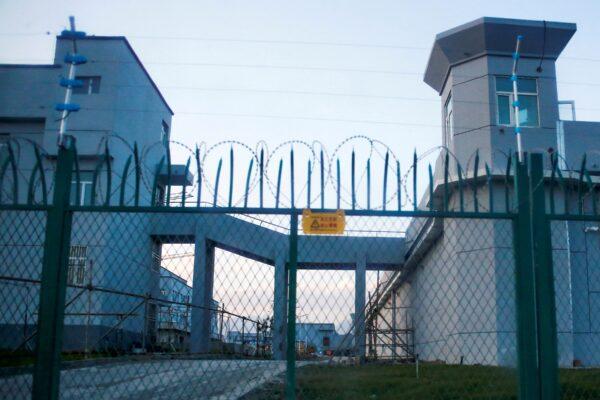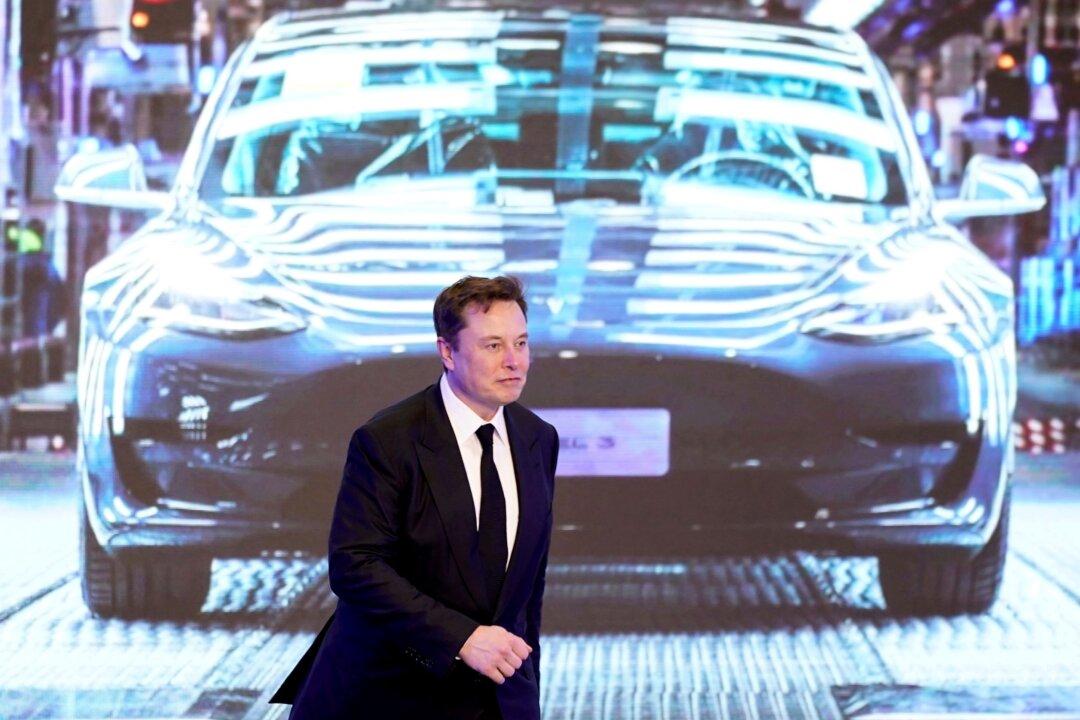Tesla has been criticized for opening a new showroom in China’s far-western Xinjiang region, where the communist regime has detained more than one million Uyghurs and other Muslim minorities.
Tesla’s first showroom in Xinjiang started operation in the region’s capital city Urumqi, the company announced in a post on its official Weibo account on Dec. 31.
”On the last day of 2021, we meet in Xinjiang,” the U.S. electric carmaker wrote on the Twitter-like platform. “In 2022, let’s start an all-electric journey in Xinjiang!” The post is accompanied by pictures of the opening ceremony, where people hold placards like “Tesla [heart] Xinjiang.”
Telsa, which opened its first factory outside the United States in Shanghai in 2019, marks the latest Western business under pressure to take a position on Xinjiang. The ruling Chinese Communist Party (CCP) has attacked clothing and other brands that voiced concern over forced labor in Xinjiang, with the latest targets including Walmart and Intel.
Researchers found more than one million Uyghur and other Muslim minorities have been incarcerated in internment camps in Xinjiang, where they have been subjected to forced sterilization, torture, political indoctrination, and forced labor. The United States and other Western democracies have labeled Beijing’s actions as genocide.
“No American corporation should be doing business in a region that is the focal point of a campaign of genocide targeting a religious and ethnic minority,” Ibrahim Hooper, communications director of the Washington-based group, said in a statement on Monday.
Tesla’s move also drew criticism from the Alliance of American Manufacturing industry body and U.S. Sen. Marco Rubio (R-Fla.).
Tesla did not immediately respond to a request for comment.

State media outlets lashed out at the company, and nationalists called for a boycott on the country’s social media platforms. Facing the wrath of Beijing, Intel said the letter was in compliance with U.S. law, and that doesn’t reflect the company’s stance on Xinjiang.
Walmart and Intel are not the only companies facing challenges in one of their biggest markets. Last year, clothing brands like H&M and Adidas drew the ire of the CCP after they expressed concerns about the use of forced labor in cotton produced in Xinjiang. Following the boycott call endorsed by the Communist Youth League, major Chinese online shopping platforms removed their products and stores.
While these companies seek to avoid supply chains exposed to the region, many foreign auto brands, including Volkswagen, General Motors, and Nissan Motor Co., have showrooms in Xinjiang, operated by the automakers’ Chinese joint-venture partners. VW also operates a factory in Urumqi.




